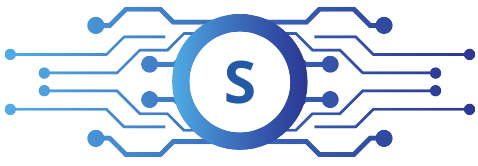
The future of cloud computing is highly promising and transformative, with ongoing advancements and innovations driving its growth and adoption. Here are some key trends and predictions that highlight the future of cloud computing:
- Continued Growth and Adoption: Cloud computing will continue to experience significant growth and adoption across industries and sectors. As organizations increasingly recognize the benefits of scalability, flexibility, cost-efficiency, and accessibility, more businesses will migrate their operations to the cloud.
- Hybrid and Multi-Cloud Environments: Hybrid and multi-cloud strategies will become more prevalent as organizations seek to leverage the strengths of different cloud providers and maintain control over their data and workloads. Hybrid cloud solutions combine private and public clouds, while multi-cloud involves using multiple cloud providers for diverse services and locations.
- Edge Computing Integration: Edge computing will play a vital role in the future of cloud computing. By moving computing and processing closer to the data source, edge computing reduces latency, improves real-time data analysis, and enhances responsiveness. Cloud providers will integrate edge computing capabilities to support IoT devices, smart cities, and other edge-driven applications.
- Artificial Intelligence (AI) and Machine Learning (ML): The integration of AI and ML into cloud computing will accelerate, enabling smarter data analysis, predictive insights, and automation. Cloud platforms will offer more AI/ML services and tools, making it easier for developers to implement intelligent applications and solutions.
- Serverless Computing: Serverless computing will gain even more traction, allowing developers to focus solely on writing code without worrying about server management. As more businesses embrace serverless architecture, the technology will evolve to handle larger workloads and become more cost-effective.
- Security and Privacy Advancements: Cloud security will remain a top priority for providers and users alike. Cloud providers will invest heavily in advanced security measures, including encryption, identity and access management (IAM), and threat detection systems, to protect sensitive data and defend against cyber threats.
- Quantum Computing Impact: As quantum computing technology progresses, it has the potential to revolutionize cloud computing by significantly enhancing data processing capabilities and solving complex problems beyond the reach of classical computing. Quantum cloud services may emerge to facilitate access to quantum computing resources.
- Sustainability and Green Cloud Computing: Cloud providers will increasingly focus on sustainability and energy efficiency to minimize their environmental impact. Green cloud computing initiatives will grow, incorporating renewable energy sources and energy-efficient infrastructure to reduce carbon footprints.
- Blockchain Integration: Blockchain technology will find applications in cloud computing, particularly in enhancing security, trust, and data integrity. Decentralized cloud storage and identity management are some areas where blockchain integration could have a significant impact.
- Democratization of Cloud Services: Cloud computing will become more accessible and user-friendly, allowing non-technical users to take advantage of cloud services without extensive technical knowledge. Low-code and no-code platforms will enable individuals to create and deploy cloud-based applications with ease.
In conclusion, the future of cloud computing is bright and dynamic, with ongoing advancements and innovations reshaping how businesses and individuals use and benefit from cloud technologies. The key trends mentioned above point to a future of increased efficiency, scalability, security, and intelligent data analysis, empowering organizations to thrive in the digital age.



